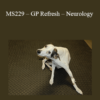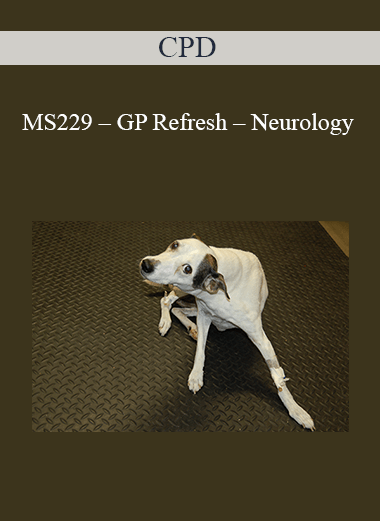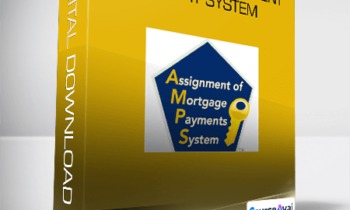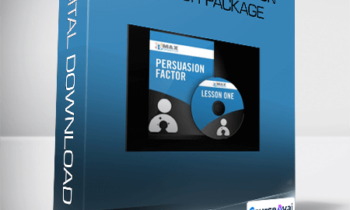$479.00 Original price was: $479.00.$114.00Current price is: $114.00.
 Purchase this course you will earn 114 Points worth of $11.40
Purchase this course you will earn 114 Points worth of $11.40Elevate your skills with the CPD – MS229 – GP Refresh – Neurology course, available for just $479.00 Original price was: $479.00.$114.00Current price is: $114.00. on Utralist.com! Browse our curated selection of over 60,000 downloadable digital courses across diverse Everything Else. Benefit from expert-led, self-paced instruction and save over 80%. Start learning smarter today!
Purchase CPD – MS229 – GP Refresh – Neurology courses at here with PRICE $479 $114
MS229 – GP Refresh – Neurology
£347.00 (+VAT)
Join Recognised Specialist in Veterinary Neurology Simon Platt for three 2-hour sessions. Includes 12 months access to all of your course materials.
- Join RCVS Recognised Specialist in Veterinary Neurology Simon Platt for three 2-hour online sessions
- Comprehensive notes to downloaded
- Self-assessment quizzes to ‘release’ your 8 hours CPD certification (don’t worry, you can take them more than once if you don’t quite hit the mark first time)
- A whole year’s access to recorded sessions for reviewing key points (and in case you miss a live session!)
- Superb value for money – learn without travelling
- Watch the live events or the recordings on your iPad!
Programme
Session 1: Wednesday 17th February 2021 2pm-4pm (UK time)
Using the neurological examination to find the disease
The most important aspect of the neurological cases we deal with is confirming where the disease is and putting this together with the history and clinical presenting signs to come up with a list of possible causes. In this session we will cover the most essential and meaningful parts of the neurological examination and unravel the mysteries of what each component means using videos to help us identify where the disease is and then working out what the possible causes could be.
What you’ll learn:
- How to do a hands of evaluation of the presenting patient
- How evaluate the cranial nerves
- How to evaluate reflexes and understand what they tell us
- Where to localize the disease to
- How to develop a list of differentials to consider
Head tilts and brains on fire!
The common clinical signs of vestibular disease include head tilt, nystagmus and ataxia. The location of the responsible lesion can be determined using a neurological examination which will be described in this lecture. The common causes of peripheral and central vestibular dysfunction will be described. Once the lesion localisation has been covered and the most common differentials reviewed, we will focus on the diagnosis and treatment of CNS inflammation as a set of diseases which rarely have a definitive diagnosis but need an aggressive treatment for the treatable approach.
What you’ll learn:
- How to localise peripheral vestibular disease
- How to localise central vestibular disease
- What are the causes of peripheral vestibular disease and their management
- What are the causes of central vestibular disease and their management
- Specific management of CNS inflammatory disease
Seizures – from start to finish
There are many drug options available for the dog and cat with seizures which include phenobarbital, potassium bromide, levetiracetam and zonisamide. The theory behind ideal seizure management and the facts about the drugs we use will be covered in this session which will also include information on the possible adjunctive treatments available for this disease which include acupuncture, diet and vagal nerve stimulation.
What you’ll learn:
- What is a seizure and how to differentiate it from other causes of acute collapse
- How to work a seizure case up
- When to start treatment
- The pros and cons of all the available seizure medications
- What to do when seizures become an emergency
Purchase CPD – MS229 – GP Refresh – Neurology courses at here with PRICE $479 $114
Cultivate continuous growth with the CPD – MS229 – GP Refresh – Neurology course at Utralist.com! Unlock lifetime access to premium digital content, meticulously designed for both career advancement and personal enrichment.
- Lifetime Access: Enjoy limitless access to your purchased courses.
- Exceptional Value: Benefit from savings up to 80% on high-quality courses.
- Secure Transactions: Your payments are always safe and protected.
- Practical Application: Gain real-world skills applicable to your goals.
- Instant Accessibility: Begin your learning journey immediately after buying.
- Device Compatible: Access your courses seamlessly on any device.
Transform your potential with Utralist.com!
Related products
Everything Else
Jacob Sokol – Quadruple Your Coaching Biz 19 expert sessions
= 43 Points
Everything Else
= 47 Points
Everything Else
= 56 Points
Everything Else
= 137 Points
Everything Else
= 43 Points
Everything Else
= 81 Points
Everything Else
= 38 Points
Everything Else
= 128 Points
Login

 Purchase this course you will earn 114 Points worth of $11.40
Purchase this course you will earn 114 Points worth of $11.40










